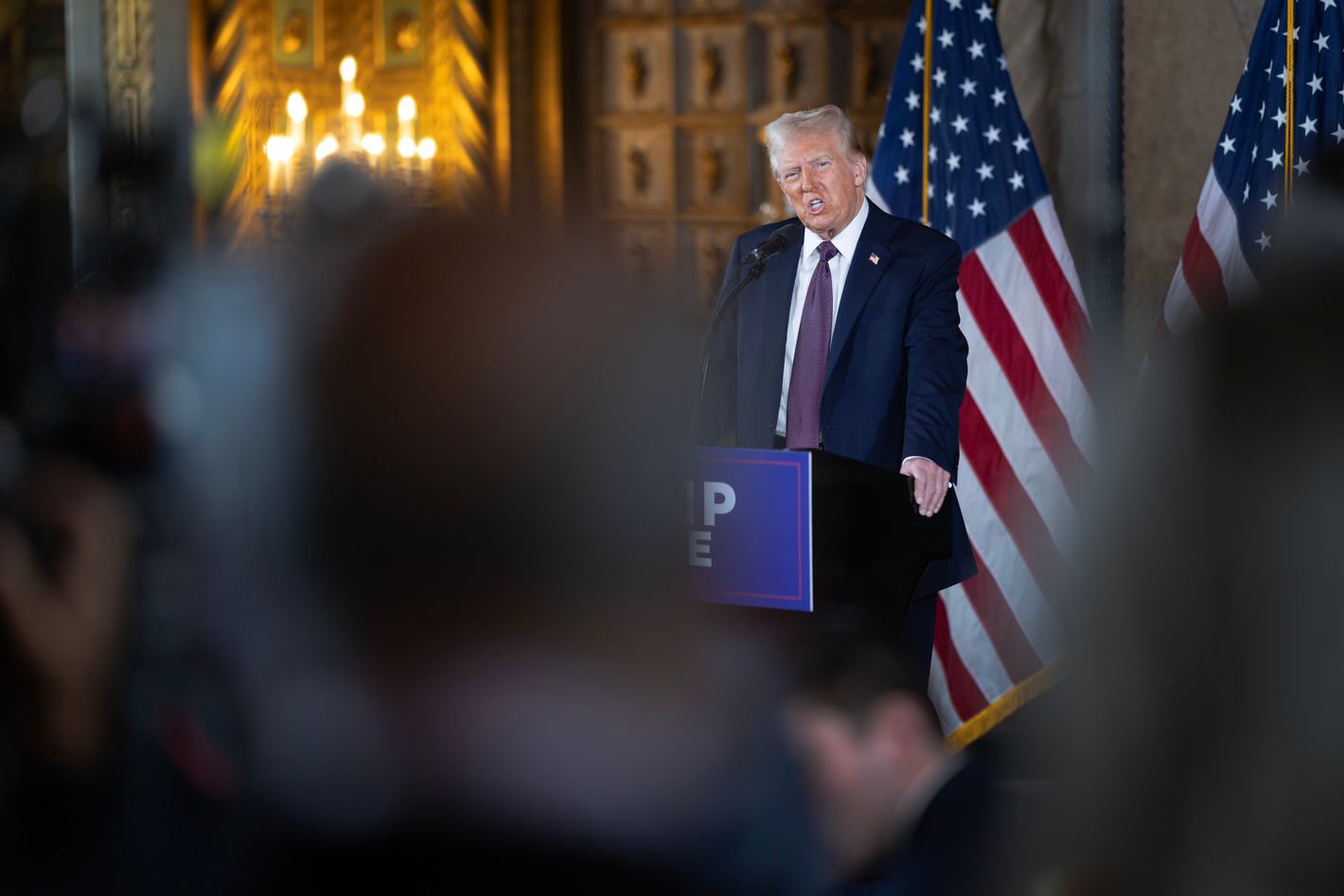Photo: Scott Olson/Getty Images
President-elect Donald Trump’s press conference at Mar-a-Lago on January 7 was a lost opportunity for insight into the new administration’s concrete plans to turn the federal government upside down, slash taxes, unveil the “concepts” of a health-care plan, and test the constitutional limits of executive authority, among other radical aspirations Trump expressed during his latest campaign. Instead the once-and-future president wallowed in a variety of personal grievances, then threatened the sovereignty of various nations and territories, including Canada, Greenland, and Panama. In a signature stunt that may or may not have been a twisted joke, Trump promised to rename the Gulf of Mexico the “Gulf of America.”
It’s easy to just dismiss the presser and its classic presentation of the incoherent Trumpian rhetorical “weave” as a nothing-burger and wait for a more authoritative expression of the new administration’s plans. But that would probably be a mistake. The president-elect really did convey something important to the whole world: a forceful reminder that he is an extremely unpredictable champion of America’s interests as he sees them, and will not be restrained from protecting and advancing them by precedent, taste, or conventional wisdom.
There’s a reason Trump simultaneously criticizes his predecessors and rivals for warmongering even as he insists on ever-greater defense spending and trashes every conceivable moral or legal restraint on the use of force. His entire view of foreign policy and national security depends on the Nixonesque doctrine of the “madman theory,” whereby potential adversaries can make no move without considering the possibility that the president of the United States will react in an insanely violent and even catastrophic manner. His refusal during the January 7 press conference to rule out the use of military force to conquer Greenland or to reclaim the Panama Canal has created considerable consternation in the countries that seem to be the objects of his avarice; Danes and Panamanians have little choice but to take the threats seriously, if not literally.
But the expressions of instability and malice are also intended for the ears of Xi Jinping, Vladimir Putin, Volodymyr Zelenskyy, Keir Starmer, Emmanuel Macron, Ali Hosseini Khamenei, and every leadership element in Israel, Palestine, and Syria. So the odds are high there was nothing accidental about Trump’s neo-imperialist utterances this week. He wants everyone to worry about his intentions, and to fuck around and find out if he means what he is saying.
As Jonathan Chait explains in The Atlantic, this sort of wild saber-rattling has a domestic political purpose as well:
Trump uses his international bullying as fan service for his base. The actual, concrete policy agenda of Trump’s presidency consists largely of boring regulatory and tax favors to wealthy donors and business interests — priorities that most of his voters don’t care about. Trump seems to grasp the need for public dramas to entertain the MAGA base.
But for all its entertainment value (as an ongoing horror movie to some, and a drama-comedy to others), there are serious risks embedded in Trump’s constant reinforcement of his reputation as a lunatic who happens to have a massive nuclear arsenal: that some adversary will miscalculate the risk of war and act preemptively. At some point as well, his threats could lose potency if he fails to follow through with the promised lethal violence.
So while the 47th president may perhaps be sincere in his opposition to “forever wars” that sacrifice American lives and treasure for abstract goals like global peace and democracy that he really doesn’t care about, he seems constrained to threaten “whatever wars” that mostly make sense as a way of reminding the world of his capriciousness. In this as in so many other respects, it’s going to be a long four years.

